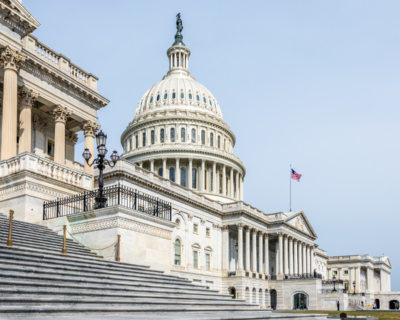
The Pro Act Would Be a Disaster for Louisiana Workers
Louisiana workers have struggled to recover from the economic and physical damage caused by the pandemic. There are 132,000 fewer Louisianans working than in March of 2020, and the 6,700 jobs created in June means there is a long way to go until the economy gets back to pre-pandemic levels. While workers in Louisiana are struggling to recover, there is a new threat that would make it even harder for Louisianan workers to bounce back. The Protecting Our Right to Organize (PRO) Act would make economic recovery more difficult for Louisiana workers by stripping them of important freedoms and protections.
The PRO Act is currently being considered as an amendment to the 3.5 trillion-dollar infrastructure package in the United States Senate and it would be detrimental to the freedoms of Louisiana workers. If passed, the PRO Act would force many Louisiana workers to join a union or lose their job. The act would also force gig economy workers to be considered full time workers and strike a serious blow against flexible work through the gig economy.
For nearly 50 years, Louisiana has been a right-to-work state. This means that workers cannot be required to join a union and instead are free to join or not join a union as they see fit. The PRO Act would overturn all state right-to-work laws going against federalism and a worker’s freedom to associate. Instead of workers deciding whether joining a union is worth the dues, they are now faced with the choice of joining the union or being fired.
The PRO Act would also limit worker’s freedom and flexibility, primarily those working in the gig economy for companies such as Lyft, DoorDash, or Postmates. Currently, all these employees are contract workers, rather than full time employees. The PRO Act would end this arrangement by limiting contract jobs to work “performed outside the usual course of the business of the employer”. In other words, its ok for a company like Uber to hire a construction contractor to build an office, but drivers would all be forced to count as full-time employees. This would be detrimental to all workers that benefit from the gig economy and the benefits it offers over full-time employment.
Workers in the gig economy have shown a clear preference for the flexibility their current arrangement provides. 70 percent of Lyft drivers have another job including a majority of which have driven with Uber. Additionally, more than 1/3 of Lyft drivers have worked for a delivery app such as Doordash. Forcing these workers to be employees of one employer would limit their other opportunities and their ability to provide for their families.
For proof of the harm that can come about when limiting the gig economy look no further than California’s Assembly Bill 5. The legislation also attempted to force gig economy workers to be full time employees. This legislation ended up roping in all kinds of professions like photographers, writers, and independent truckers, many of whom suddenly found themselves out of a job and unable to provide for their families.
With approximately 15 percent of Americans engaging in gig economy work, this legislation could throw much of the labor market in disarray at a time when jobs and opportunity provided by the gig economy are needed most.
The PRO Act is anything but pro worker. It would remove important workplace protections and the right to freedom of association for millions of workers. It would also end the freedom to work how and when people want within the gig economy. The federal government should let Louisiana continue to protect workers freedoms.



